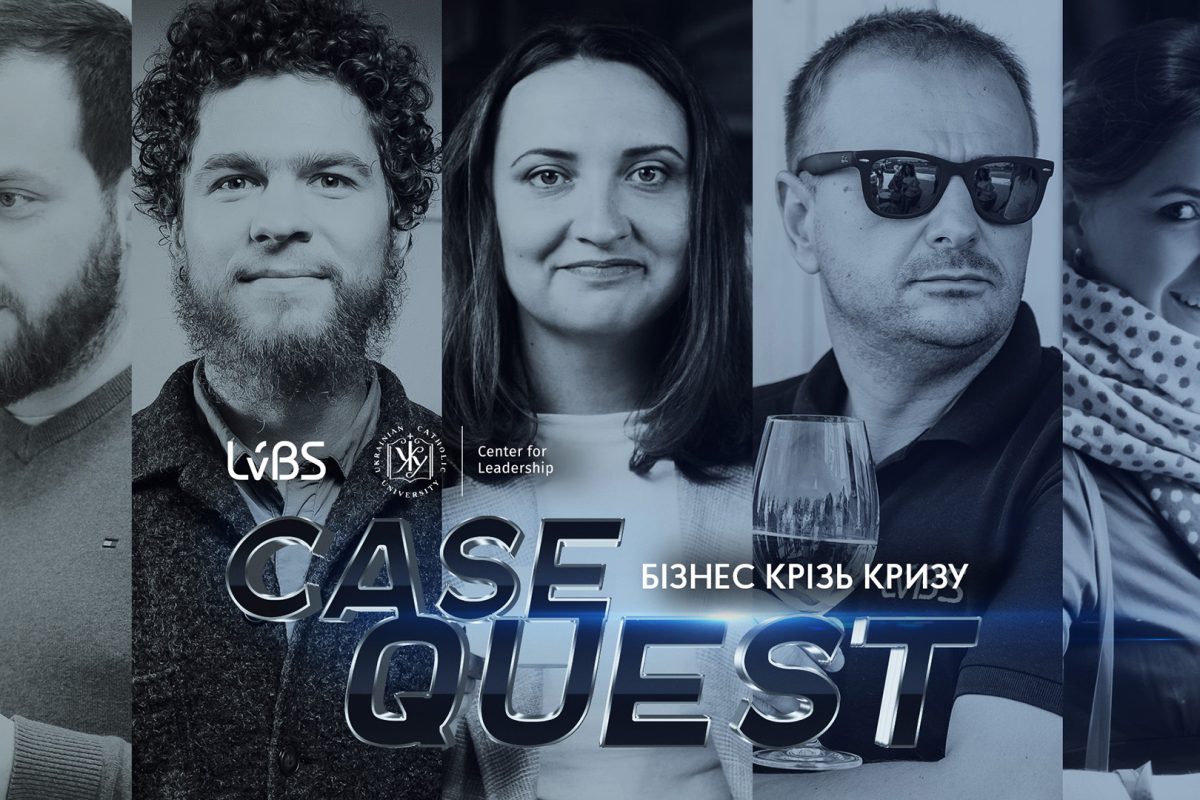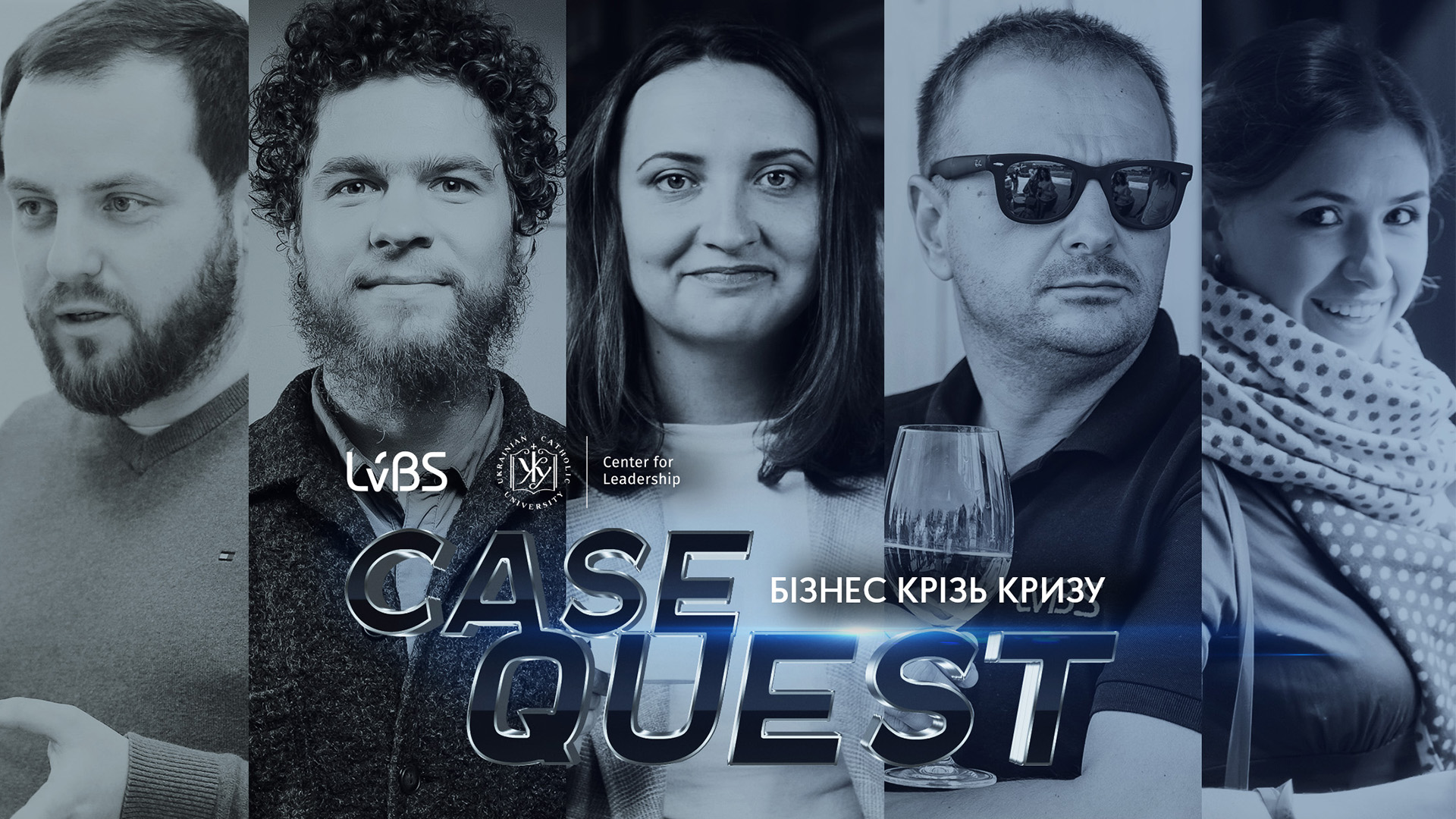
Case-Quests: a New Learning Format at LvBS That Has Helped Businesses to Quickly Act In Crisis
Because of COVID-2019, quarantine in Ukraine began in mid-March 2020. Immediately after the quarantine was announced, the Business School of Ukrainian Catholic University (LvBS) and the Center for Leadership of UCU, which operates on the basis of LvBS, launched a new format of learning – “case quests’, which is aimed to help participants (entrepreneurs) learn to quickly find solutions to complex business problems in times of crisis. The project also had a societal impact: support for Ukrainian doctors who are at the forefront of the fight against the epidemic, and thus 25% of the profits were directed to the needs of medical institutions in Lviv.

In cooperation with Ukrainian business representatives, we have developed 5 unique mini-case studies on crisis management and strategies for Ukrainian business in a pandemic and in the early stages of the economic crisis.
We have interviewed entrepreneurs from various fields, who today, like thousands of others in Ukraine and the world, are experiencing challenging times of the crisis.
Yesterday successful entrepreneurs, suddenly found themselves in conditions of quarantine, demand reduction, loss of customers, and, in some cases, without any income.
The format of case-quests consisted of the following stages:
1.Interview with the protagonist. A working group, led by LvBS faculty, conducted an in-depth interview with a leader of an organization, who have faced a difficult managerial situation (related to quarantine). If necessary, additional interviews were conducted with some employees, and other stakeholders.
2.Creation of a mini-case. There were determined the learning objectives and the theory, that the faculty planned to disclose on the basis of this mini-case. Based on the interview, the text of the mini-case was formed (up to 3 pages).
3.The webinar “Case-Quest”. The day before the study, participants received the text of the case-quest for review. Because of the obvious reasons, each of the training itself took place online, lasting 2 hours. The webinar was always attended by:
- A faculty (or two) who moderated the event, taught theory and answered participants’ questions;
- The case protagonist, who answered additional questions from the participants, gave feedback on the work of the working groups;
- Moderators of working groups (LvBS team), who helped participants to organize their work online and answer questions related to the case.
4. Teaching materials. The next day participants received the presentation with theoretical material and brief results of the working groups’ developments.
Our main heroes were:
- Alina Tokmylenko – managing partner of «23 Restaurants» company. The topic of case-quest – «Restaurant business: does loyalty die in a crisis».
- Rostyslav Kulyk – founder and CEO of «Gastroly.ua». We spoke about «Event industry in a crisis: «to stop selling tickets is forbidden».
- Iryna Bilyk – owner of «Bilka – green ideas in action». Participants have generated ideas on «Operational challanges: new demand in state of limited resources».
- Andrew Dziuban – restaurateur, owner of the «Caramel Workshop» chain stores and co-founder of Tante Snails Snail Farm. Online-meeting’s topic – «Newer waste a good crisis: how to find solutions at the intersection».
- Valerii Shypunov – partner and CTO at Innocode. The last case-quest was devoted to the «Long game: why culture matters».
As a result, 135 participants of the “case-quest” project (entrepreneurs and managers) had the opportunity to reflect on how the protagonist should act in the current situation of crisis, and to draw analogies with their own business and, hopefully, to find solutions to their own dilemmas.
In turn, the protagonists got valuable professional advice from LvBS faculty and useful and fresh ideas from other participants (entrepreneurs like they are).
Conclusions: within the project, all participants have been convinced that in times of economic crisis the most paramount are values, partnerships and cooperation, communication (both internal and external), readiness for future challenges (business as a marathon).